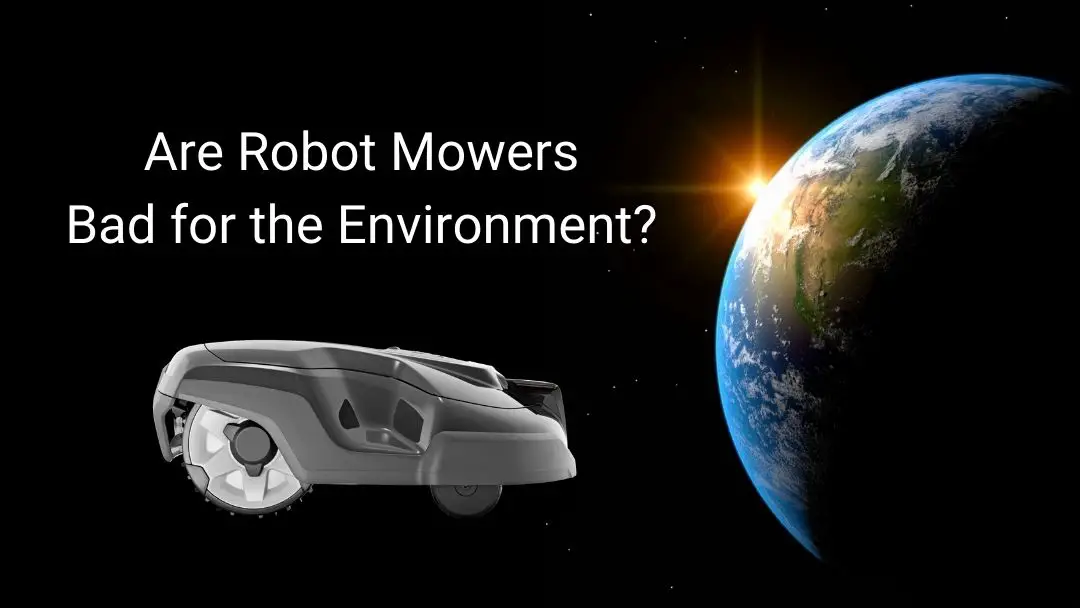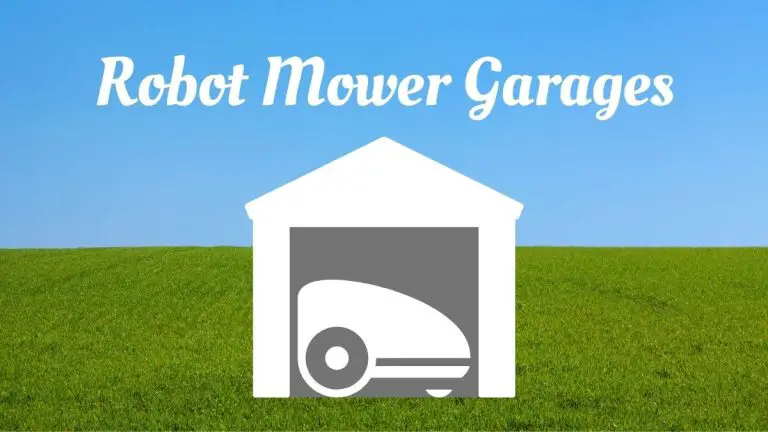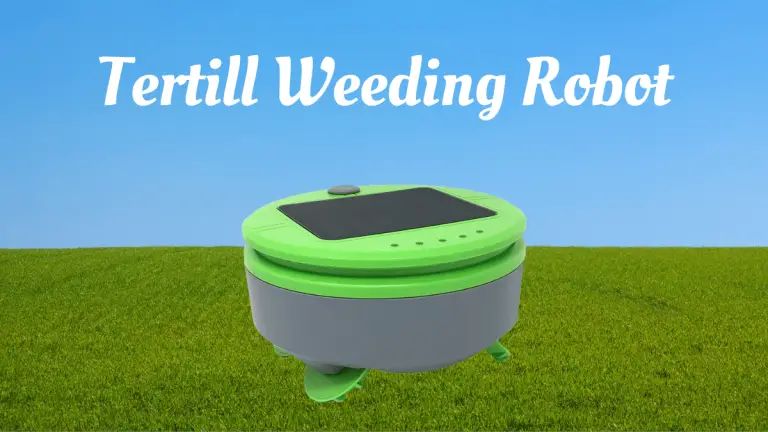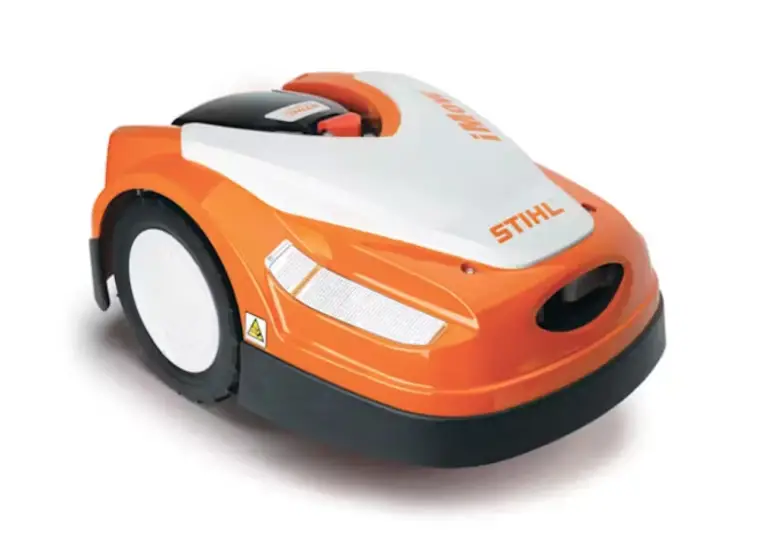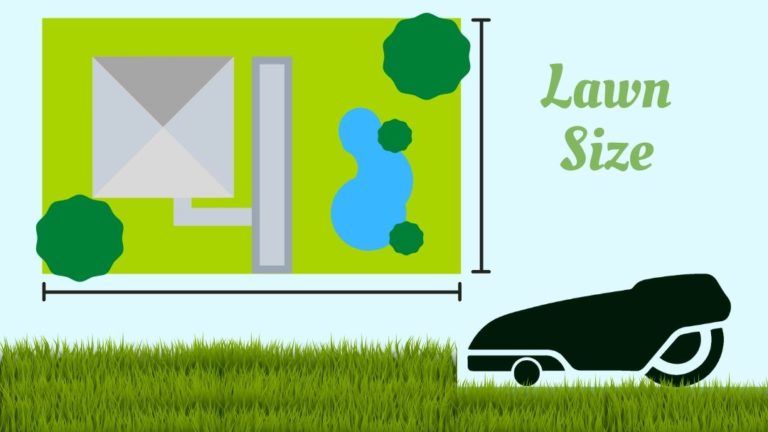Truth Are Robot Mowers Sustainable?
Robotic Lawn Mowers are becoming more and more popular, with the number of robotic lawn mowers sold increasing 12% every year. But are they really an improvement on traditional gas-powered lawnmowers? Are Robot Mowers Sustainable?
Seen as one of the first in a revolution of robotic helpers, along with the Roomba, that will soon be doing all of our work for us.
The common opinion is that using these new helpers is better for the environment due to the fact that they don’t emit any greenhouse gasses. The same argument is made for electric cars.
While there is some truth to this, the story is much deeper than that.
Greenhouse gases from production, operational energy requirements, and disposal of the unit once it comes to the end of its life all have an impact on the total impact it has on the environment.
We have done the research, to the best of our abilities, to look at the different points and see the real impact of these new robots, good or bad.
Production of Robot Lawn Mowers
Obviously, there will be a cost to produce a robotic lawnmower and a traditional petrol-powered lawnmower and what we are really looking at here is the different expected costs.
While we have not been able to find any concrete evidence on this we can expect that with the currently decreasing cost and improvements to the production efficiency of batteries, Robotic mowers will continue to have a lower impact.
At the same time, traditional internal combustion lawnmowers require significantly more steel or other raw metal alloys to produce. This can be seen simply by the difference in the final weight of the machines.
With the limited data we have available we can assume that production is not a significant factor either way for these machines.
Emissions from Operation
Operational emissions are the most important that we need to cover. There are a number of reasons for this but one of the biggest is due to the proximity that traditional lawnmowers have to our homes.
According to Scientific American, 5% of American pollution comes from petrol lawnmowers and this is a crazy figure to think of. Just changing these over to electricity and getting that energy from green sources could have a big impact on the emissions of the USA and for that matter the world if this strategy was adopted more widely.
Robot Mower Emissions
So this one sounds like Robotic mowers would be the winner but let’s find out.
So, how much power a robot mower uses per year?
According to these statistics from Robomow, a robot mower will use anywhere from 30kwh to 400kwh per year depending on the size of the unit and the area it needs to mow.
This would produce 21kgs to 280kgs of CO2 per year if coming from fossil fuel power plants.
This would be about the same as running the drier for 36 hours, or how much power an electric car would use to drive around 860 miles.
This sounds like a lot but we also have to think that if the power is coming from renewable sources like solar, wind, or nuclear then the emissions would be 0.
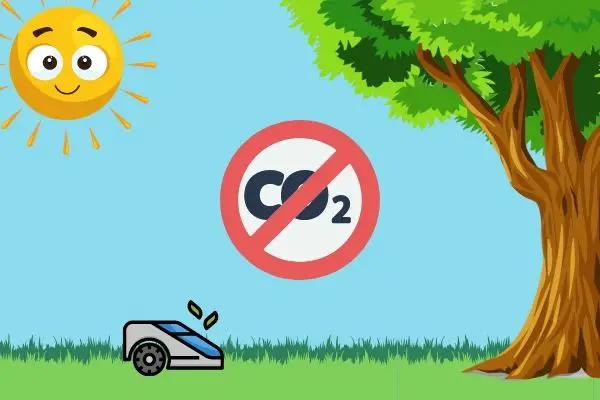
In short, robotic lawnmowers, while potentially producing carbon now from fossil fuel power generation enable a much easier and faster switch to green energy as more come online.
Traditional Lawnmower Emissions
Here is an extract of the findings from the EPA on gas-powered lawn mowers.
The EPA found that gasoline-powered lawn mowers emit eight times more nitrogen oxides, 3,300 times more hydrocarbons, 5,000 times more carbon monoxide, and more than twice the CO2 per hour of operation than electric/robotic lawn mowers.
This extreme difference in emissions paints a pretty bad picture of the humble old lawn mower. They contribute in a large way to urban smog production and are responsible for a large amount of pollution overall.
According to this article, a single new petrol-powered model lawnmower is about as dirty in its pollution output as 11 new cars when run for the same period of time. Or for 1 hour of operation about the same as an 1100 mile drive in a Toyota Camry.
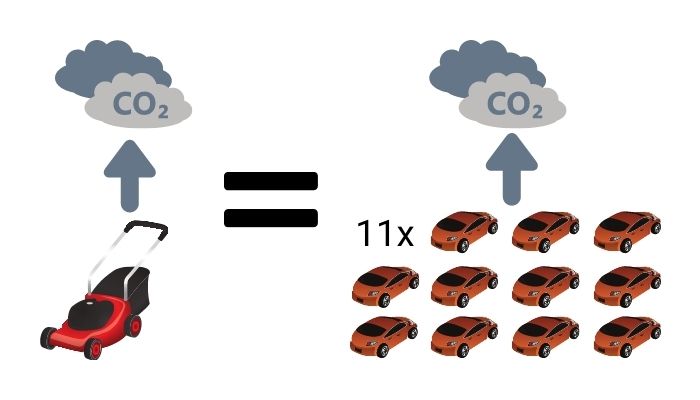
Conclusion are Robot Mowers Sustainable
Based on our research, it appears that Robot Lawn Mowers have a negative impact on the environment.
Despite advancements in their technology, they still emit CO2 and their manufacturing and disposal processes contribute to environmental harm.
But… They are much better than the alternative.
Similar to electric cars, Robot Lawn Mowers face a comparable environmental concern.
While many human-made products are not environmentally friendly, electric cars and Robot Lawn Mowers are notably superior to their counterparts that consume gas and emit smog.
Sources and Links
https://www.researchgate.net/publication/235679799_A_Survey_of_Robot_Lawn_Mowers
https://www.epa.gov/energy/greenhouse-gas-equivalencies-calculator
https://ww3.arb.ca.gov/msprog/offroad/sm_en_fs.pdf?mod=article_inline
https://www.onlynaturalenergy.com/grass-lawns-are-an-ecological-catastrophe/

